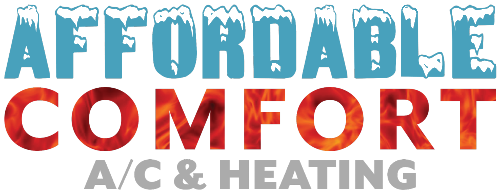Indoor Air Quality
Indoor air quality has a close correlation to the heating and cooling industry. The filter for your HVAC traps dust, dust mites, mold, dirt, pet hair and dander, and other debris before it can enter your HVAC system and vents. The filter not only helps keep coils and vents cleaner, but it prevents those particulates from exiting through the vents and spreading throughout the home.
As the days here in the Phoenix area turn warmer, the spring brings heavy blooming for grasses and other plant material, making the air heavy with pollen. Allergy sufferers struggle due to the pollen combined with air inversion we experience here. Itchy eyes, runny noses, fatigue, sore throats, headaches, and dizziness are all symptoms of poor air quality.
But air quality problems aren’t limited to pollutants from the outdoors coming in. Air quality is also adversely affected by things which are already in the home or activities the occupants do or fail to do which can promote poor air quality. For example, even in upscale neighborhoods, homeowners will sometimes let their air filter remain unchanged for months. That’s an essential maintenance task which is easy to perform. Here are some other suggestions to improve air quality in the home:
Use the vent fan when cooking
Particulates from cooking, such as grease, may not add to poor indoor quality so much on their own, but leave a residue on walls and ceilings to which other pollutants can cling. By using a vent fan and keeping kitchen walls and cabinets clean by periodically removing this buildup with a good degreaser, the pollutants in a kitchen can be minimized.
Frequent cleaning
Vacuuming with a high-quality HEPA air filter will reduce contaminants in the home without throwing more contaminated exhaust into the air if the vacuum has a HEPA filter. It’s helpful to vacuum often and wash the filter on a regular basis as well as mopping and dusting regularly. This includes all surfaces in the home.
In addition, sheets and pillows should be washed frequently, and a mattress and pillow cover used to protect bedding. By keeping closet doors tightly closed, it will minimize the opportunity for clothing fibers and dust to spread.
Mold
Mold is the bane of an allergy sufferer, but even a non-sensitive individual can suffer when mold is present. The use of the fan when showering or bathing and repairing leaks immediately, will prevent the chance for mold to grow. Homeowners should have mold areas treated promptly by a professional unless they’re very small.
Fumes
Painting projects should be done outside, or windows and doors opened if painting walls. Use of air fresheners, scented candles, perfumes, scented fabric softeners, cleaners, and soaps can cause or exacerbate allergy symptoms.
Keep it out
Use welcome mats outside and inside the front door. If an extremely sensitive allergy-sufferer lives in the home, people may remove their shoes at the front door. The welcome and door mats should be cleaned frequently, as should any pets. Use caulking and seals to prevent roaches, and by association, their allergy-producing fecal matter.
Tabletop or whole-house filtration systems
Since the humidity here in the Valley is low, whole-house filtration systems aren’t as popular as they are in other places, however, tabletop filtration systems are becoming more popular.
Tips for highly sensitive individuals
If a home has particularly sensitive allergy sufferers, hardwood floors and tile are easier to clean and hold fewer contaminants. Pets should not be allowed in their bedrooms or bed. If a ‘new smell’ emanates from newly-purchased furniture or other large-scale items, homeowners should consider putting them in storage or some other off-site location until the material has had time to ‘breathe.’
Periodic HVAC service
During a periodic HVAC service, the technician will change the air filter, lubricate the moving parts, perform other diagnostic tests and tasks and clean areas the homeowner can’t reach, such as coils and other components. This will also give the homeowner a chance to discuss various filters with the technician, depending on the unit.
While this list is by no means comprehensive, it can help the occupants of a home begin to fight for better air quality.
Trust locally-owned and operated Affordable Comfort A/C and Heating for HVAC preventative maintenance and thermostat services. Call 602-574-1205 to schedule a consultation.


